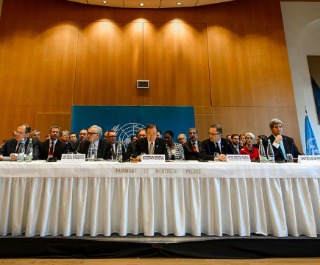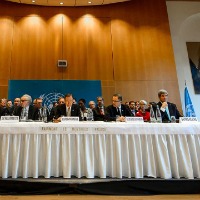--Labor MK Merav Michaeli calls on the government to stop funding a military prep progam located in an settler outpost for 16 years.**
--Finance Minister and Yesh Atid Chairman Yair Lapid in a passionate plea at the opening of the Conference of Presidents of Major Jewish Organizations.**
Saudi Gazette - February 7, 2014
Editorial cites Peace Now data
http://www.saudigazette.com.sa/index.cfm?method=home.regcon&contentid=20140208195034
Arutz 7 - February 12, 2014
Peace Now opposes plan to build large Yeshiva in Sheikh Jarrah
http://www.israelnationalnews.com/News/News.aspx/177406#.UvwhHDZdWN0
Boston.com (AP story) - February 12, 2014
Peace Now data cited in story on boycotting settlement products
http://www.boston.com/news/world/middle-east/2014/02/12/israeli-settlements-also-face-pressure-from-within/LUN3fSo0PA2jlXkXydSdIM/story.html
San Diego Jewish World - February 12, 2014
APN press release reprinted in its entirety
http://www.sdjewishworld.com/2014/02/12/apn-lauds-104-house-letter-signers-iran-sanctions/

This week, Alpher discusses the Obama administration examining alternative options to the failed Geneva talks on the Syria conflict and whether there are any military or non-military US options; what are Israel's priorities regarding its approach to the fighting, even though they're not involved in efforts to end the conflict in Syria; if the Syria conflict ended tomorrow, how soon would the region revert to something approaching normalcy.
--Knesset legal advisor Gur Bligh fights in High Court to punish any Israeli who calls for a boycott of Israel or settler products.**
--Meretz MK Zahava Gal-On blasts Attorney General for copping out.**
If you are a trustee, financial advisor or attorney preparing a will or helping an individual prepare a will and need legal information about Americans for Peace Now, please refer to the following.
- Americans for Peace Now Tax ID Number: 13-3509867
If you are administering an estate that names Americans for Peace Now as a beneficiary, please provide your contact information (name, address, phone number, and email). We will be in touch with you to express our appreciation for the gift and inquire how and to whom we might acknowledge it.
Please direct all estate gift correspondence to the national office of Americans for Peace Now at this address:
Americans for Peace Now
1320 19th ST NWSTE 400
Washington, DC 20036-1635
If you have any questions about any part of the process of making a gift please feel free to contact Rob McCulloch at (617) 686-2265.
1. Last will and testament
A will includes your instructions for how your property is distributed after your death. If you die without a valid will, your property will be divided based on the laws of the state in which you live. If you have been saving a precious heirloom to pass on to a favorite relative, that won’t happen unless your will specifies it. If a legacy gift to Americans for Peace Now is in your plans, that won’t happen either unless it is designated in your will.
But a will can do so much more than provide directions for the distribution of your assets. With a valid will, you can decide:
- Who should serve as your executor, trustee, or personal representative, as well as an alternate, should the person you name be unable to serve in this capacity
- If there are specific pieces of property you would like to give to certain people, such as your car, antique furniture, or jewelry
- What arrangements to make for and who will be guardians of minor children or family members with special needs
- Whether to divide your assets equally among loved ones or give according to circumstances
- Whether those you are considering leaving assets to can handle an inheritance in a lump sum or whether they should receive the gift over a period of years
A will is a living document. Be sure to review it periodically when life events such as marriage, divorce, or the birth of a child or grandchild may affect your giving wishes.
2. A living will
Also called an advanced directive for health care, it instructs your physician on what types of life-sustaining treatment or procedures you do or do not want if you cannot articulate your wishes at the time.
3. A health care power of attorney
Appoints someone to make medical decisions for you that may not be included in your living will. Name a trusted family member or friend who lives in your area and who understands your opinions and values about medical decisions.
4. A durable power of attorney for property,
Also known as your agent or attorney-in-fact who has the legal authority to coordinate your affairs and manage your assets if you can no longer do so.
5. A letter of instruction
Communicates your wishes to your family about matters such as funeral plans and obituary information that are not usually included in other documents. Keep your letter of instruction at home where it can be easily found. If the only copy of your letter of instruction is in a safe-deposit box or at your attorney’s office, your wishes may not be known or followed.
6. A list of important documents
To help your loved ones find and access your assets, list all of your financial accounts. Also provide names and contact information for important individuals such as lawyers, accountants, and others with whom you conduct financial business. Other useful documents to keep in a safe place along with estate planning documents include
- Birth certificates
- Marriage certificates
- Adoption papers
- Divorce agreements
- Prenuptial agreements
- Insurance policies
- Loan documents
- Real estate titles
- Deeds
- Powers of attorney
- Social Security records
- Partnership agreements
Once you’ve completed the various components of your estate plan, you’ll have the peace of mind of knowing that you have a valid plan that addresses your needs and wishes and those of the family members and charities that are important to you.
Exceptions: What Can Override a Will
While a will is a critical legal document, other estate planning tools may supercede what’s written in a will. These include trusts, beneficiary forms, and will substitutes.
Trusts. Property held in a trust is distributed according to the terms of the trust—regardless of what the will says.
Beneficiary designations. Beneficiaries you designate for retirement accounts or insurance contracts can supersede the terms of a will. Beneficiaries are commonly named on IRAs and other retirement plans, insurance and annuity contracts, and individual investment accounts.
Will substitutes. A partnership or shareholders’ agreement may dictate how property is distributed. It’s also possible that state law can order how some property is distributed to make sure that a spouse and minor children receive part of the estate.
SodaStream, an Israeli company with a production facility in a West Bank settlement, made headlines recently due to the superstar status of its spokeswoman, Scarlett Johansson. But the real stars of the Israeli business community are those who joined with their Palestinian counterparts in an effort to use their economic heft to urge political leaders to achieve a two-state solution as soon as possible.
